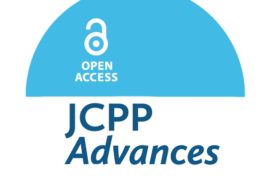Parenting programs are vital tools for addressing disruptive behaviours in children, yet low participation rates undermine their potential. Our recent research highlights that financial incentives can boost engagement, particularly among underserved families, and suggests new directions for increasing the accessibility and effectiveness of these programs (Hodson et al. 2024).
Background: The Challenge of Engagement
Disruptive behaviour disorders such as oppositional defiant disorder and conduct disorder are among the most common mental disorders of childhood (Fairchild et al. 2019).
Evidence-based parenting programs are a first-line intervention, equipping parents with techniques to promote positive behaviours and reduce disruptive tendencies (“Antisocial behaviour and conduct disorders in children and young people: recognition and management (2013) NICE guideline CG158” 2017). However, program participation is a persistent challenge: only 49% of referred parents complete these programs, and 25% never begin (Chacko et al. 2016).
Structural barriers like transportation, stigma, and competing priorities disproportionately affect families from low-income or minoritized backgrounds. These barriers perpetuate inequities, leaving many children and families without support. Financial incentives, proven to encourage healthy behaviours in other domains, may offer a scalable solution to this persistent issue (Vlaev et al. 2019).
 “Parenting programs are vital tools for addressing disruptive behaviours in children, yet low participation rates undermine their potential.”
“Parenting programs are vital tools for addressing disruptive behaviours in children, yet low participation rates undermine their potential.”
Key Findings
Our systematic review and meta-analysis of eight studies examined whether financial incentives could improve engagement in parenting programs (Hodson et al. 2025). The findings reveal a clear potential for financial incentives to enhance participation rates:
- Greater Engagement: Parents offered financial incentives were more likely to attend and complete programs compared to those without incentives (Odds Ratio 2.51).
- Breaking Barriers: Incentives appeared to be especially effective among low-income and minoritized families, addressing inequities that limit participation.
- Incentive Design Matters: Guaranteed incentives worth $10 or more per session yielded the best results. Smaller incentives, delayed incentives, and lottery-based systems were less effective.
- Impact on Outcomes: While financial incentives increased attendance, there was mixed evidence regarding improved child behaviour outcomes compared to non-incentivized groups.
Implications: Why It Matters
These findings underline the potential of financial incentives in addressing long-standing barriers to engagement. By improving participation rates, parenting programs can reach more families, particularly those in disadvantaged communities, amplifying their impact.
For practitioners and policymakers, the reviewed literature highlights key considerations:
- Cost-Effectiveness: Financial incentives are relatively low-cost compared to intensive strategies like motivational interviewing.
- Equity Focus: Targeting incentives toward underserved families could reduce disparities in access.
- Ethical Considerations: The framing of incentives – whether as gratitude, reimbursement, or encouragement-should be carefully considered to avoid undermining intrinsic motivation by implying that the programs lack value in themselves.
Future Directions: Building on the Evidence
We recommend future research exploring the following:
- The impact of financial incentives on parenting behaviours and child outcomes.
- What parents spend their incentive money on.
- Optimal incentive designs, including variations in value, frequency, and delivery methods.
Policymakers should also invest in rigorous cost-benefit analyses to determine how best to implement incentives at scale.
 “Evidence-based parenting programs are a first-line intervention, equipping parents with techniques to promote positive behaviours and reduce disruptive tendencies.”
“Evidence-based parenting programs are a first-line intervention, equipping parents with techniques to promote positive behaviours and reduce disruptive tendencies.”
Reflection: A Focus on Equity
Parenting programs offer hope to families grappling with the challenges of raising children with disruptive behaviours. However, these programs often remain out of reach for those who need them most.
It is perhaps unsurprising that parents facing structural inequalities, such as those related to race or low income, are particularly responsive to financial incentives. Sutherland et al. hypothesized this in 2008 and our results are in keeping with their theory (Sutherland, Christianson, and Leatherman 2008).
These families are more likely to be affected by the financial burdens of participation, including transportation costs, lost wages, or childcare. Our findings therefore highlight the opportunity to promote equity by addressing these practical barriers. While cash incentives provide a tangible solution where barriers are not fully understood, other interventions targeting these challenges directly may also play a vital role.
Conclusion: Incentivizing Change for Stronger Families
Financial incentives are a powerful tool for increasing engagement with parenting programs, particularly among families facing systemic barriers. While further research is needed to refine incentive designs and assess long-term effects, this strategy holds great promise for creating more equitable access to life-changing interventions.
NB this blog has been peer-reviewed
References
- “Antisocial behaviour and conduct disorders in children and young people: recognition and management (2013) NICE guideline CG158.” In. 2017. Surveillance Reports. London, UK: National Institute of Health and Care Excellence.
- Chacko, A., S. A. Jensen, L. S. Lowry, M. Cornwell, A. Chimklis, E. Chan, D. Lee, and B. Pulgarin. 2016. ‘Engagement in Behavioral Parent Training: Review of the Literature and Implications for Practice’, Clin Child Fam Psychol Rev, 19: 204-15.
- Fairchild, G., D. J. Hawes, P. J. Frick, W. E. Copeland, C. L. Odgers, B. Franke, C. M. Freitag, and S. A. De Brito. 2019. ‘Conduct disorder’, Nat Rev Dis Primers, 5: 43.
- Hodson, N., M. Majid, R. James, E. K. Graham, D. K. Mroczek, and R. S. Beidas. 2024. ‘Review: Systematic review and meta-analysis – financial incentives increase engagement with parenting programs for disruptive behavior problems’, Child Adolesc Ment Health.
- Sutherland, K., J. B. Christianson, and S. Leatherman. 2008. ‘Impact of targeted financial incentives on personal health behavior: a review of the literature’, Med Care Res Rev, 65: 36S-78S.
- Vlaev, I., D. King, A. Darzi, and P. Dolan. 2019. ‘Changing health behaviors using financial incentives: a review from behavioral economics’, BMC Public Health, 19: 1059.
About the author

Dr. Nathan Hodson is a speciality doctor in child and adolescent psychiatry in Nuneaton and an honorary fellow at the Warwick Medical School. His research is focussed on improving engagement with evidence-based parenting skills.


